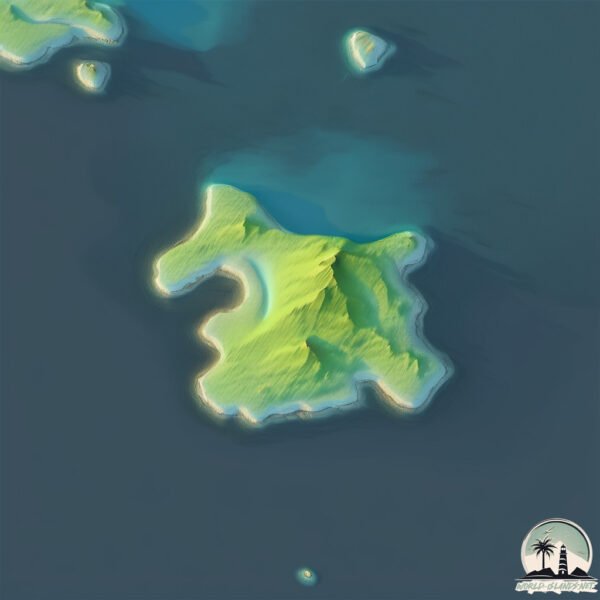Île du Loc'h

Welcome to Île du Loc’h, a Temperate island in the Bay of Biscay, part of the majestic Atlantic Ocean. This guide offers a comprehensive overview of what makes Île du Loc’h unique – from its geography and climate to its population, infrastructure, and beyond. Dive into the details:
- Geography and Size: Explore the island’s size and location.
- Climate and Weather: Weather patterns and temperature.
- Topography and Nature: Uncover the natural wonders of the island.
- Infrastructure and Travelling: Insights on reaching, staying, and making the most of your visit.
- News and Headlines: Latest News.
Geography and size of Île du Loc’h
Size: 0.684 km²
Coastline: 4.2 km
Ocean: Atlantic Ocean
Sea: Bay of Biscay
Continent: Europe
Île du Loc’h is a Tiny Island spanning 0.684 km² with a coastline of 4.2 km.
Archipel: –
Tectonic Plate: Eurasia – One of the world’s largest tectonic plates, the Eurasian Plate covers a significant portion of Europe and Asia. It’s characterized by diverse geological features, including the Ural Mountains, the European Plain, and the Himalayas formed from its collision with the Indian Plate.
The geographic heart of the island is pinpointed at these coordinates:
Latitude: 47.70550124 / Longitude: -3.99628607
Climate and weather of Île du Loc’h
Climate Zone: Temperate
Climate Details: Temperate Oceanic Climate
Temperature: Warm Summer
Climate Characteristics: Known for its moderate year-round temperatures with ample rainfall and no dry season. Warm summers are characteristic.
Topography and nature of Île du Loc’h
Timezone: UTC+01:00
Timezone places: Europe/Paris
Max. Elevation: 2 m
Mean Elevation: 0 m
Vegetation: Open Woodland
Tree Coverage: 15%
The mean elevation is 0 m. The highest elevation on the island reaches approximately 2 meters above sea level. The island is characterized by Plains: Flat, low-lying lands characterized by a maximum elevation of up to 200 meters. On islands, plains are typically coastal lowlands or central flat areas.
Dominating Vegetation: Open Woodland
Characterized by sparsely distributed trees with open canopy allowing sunlight to penetrate, supporting grasses and shrubs underneath. Often found in drier or transitional environments. Île du Loc’h has a tree cover of 15 %.
Vegetation: 3 vegetation zones – Moderately Diverse Island
These islands start to show a broader range of ecological niches. With three vegetation zones, they may offer a mix of ecosystems like coastal areas, inland woods, and perhaps a distinct wetland or dry area. This diversity supports a wider range of flora and fauna, making these islands more ecologically complex than those with minimal diversity.
Infrastructure and Travelling to Île du Loc’h
Does the island have a public airport? no.
There is no public and scheduled airport on Île du Loc’h. The nearest airport is Quimper-Cornouaille Airport, located 35 km away.
Does the island have a major port? no.
There are no major ports on Île du Loc’h. The closest major port is CONCARNEAU, approximately 19 km away.
The mean population of Île du Loc’h is 318 per km². Île du Loc’h is Moderately Inhabited. The island belongs to France.
Continuing your journey, Île de Groix is the next notable island, situated merely km away.
03/08/2022 Balade sur l'île du Loc'h



France is classified as Developed region: G7: Group of Seven – Major advanced economies, including Canada, France, Germany, Italy, Japan, the United Kingdom, and the United States. The level of income is High income: OECD.
News – Latest Updates and Headlines from Île du Loc’h
Stay informed with the most recent news and important headlines from Île du Loc’h. Here’s a roundup of the latest developments.
Please note: The data used here has been primarily extracted from satellite readings. Deviations from exact values may occur, particularly regarding the height of elevations and population density. Land area and coastline measurements refer to average values at mean high tide.
